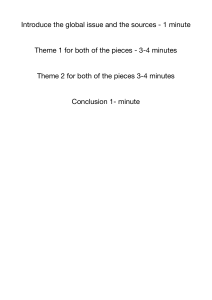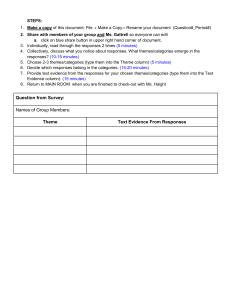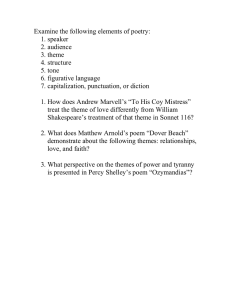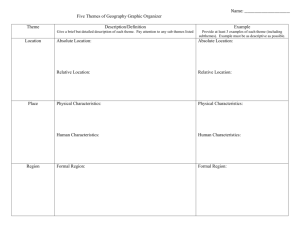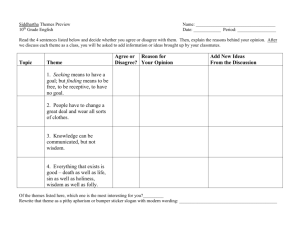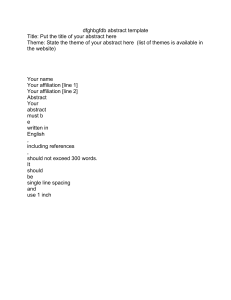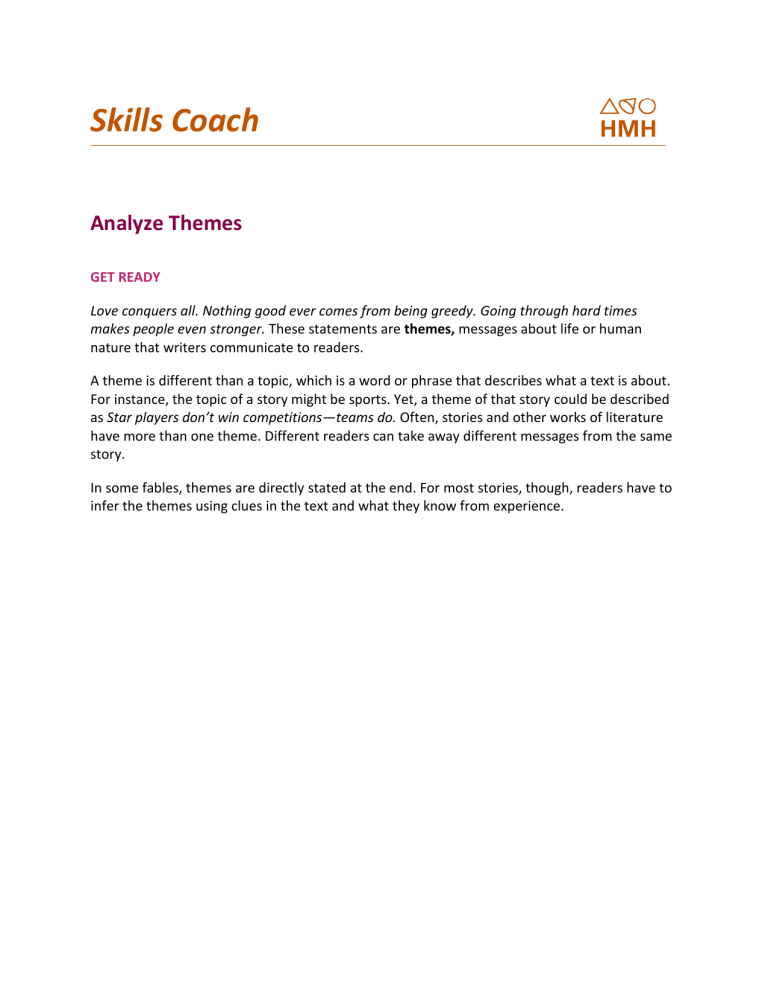
Skills Coach Analyze Themes GET READY Love conquers all. Nothing good ever comes from being greedy. Going through hard times makes people even stronger. These statements are themes, messages about life or human nature that writers communicate to readers. A theme is different than a topic, which is a word or phrase that describes what a text is about. For instance, the topic of a story might be sports. Yet, a theme of that story could be described as Star players don’t win competitions—teams do. Often, stories and other works of literature have more than one theme. Different readers can take away different messages from the same story. In some fables, themes are directly stated at the end. For most stories, though, readers have to infer the themes using clues in the text and what they know from experience. PRACTICE AND APPLY Use the graphic organizer below to take notes about any clues that help you determine the theme or themes of a work of literature you’ve read. Clues to Theme Title The title of a work can reveal important ideas related to its theme or themes. Setting Sometimes, setting is a clue. Notice how the writer describes the setting and how the characters feel about their surroundings. Characters Consider the characters’ speech and actions. What traits can you infer? Does the writer or narrator have a positive or negative opinion of each character? Important Statements Look for characters who repeat key statements or give advice to others. Resolution Think about the ending of the story and the resolution of the conflict. Do the characters learn a lesson? Do readers learn something from the way the characters respond to events? Examples from the Text Enter an example. Enter an example. Enter an example. Enter an example. Enter an example. Now choose at least two of the elements in the graphic organizer to focus on. Write a few sentences to explain how the author uses these elements to develop a theme. Cite specific details from the text to support your ideas.

